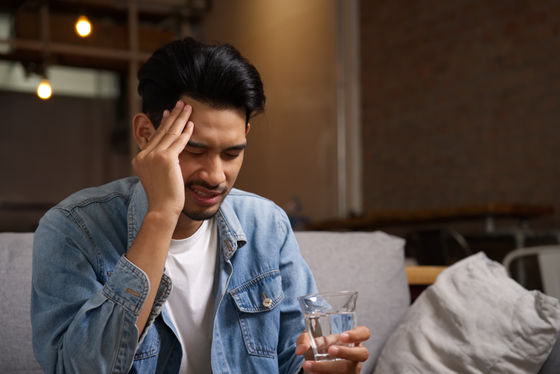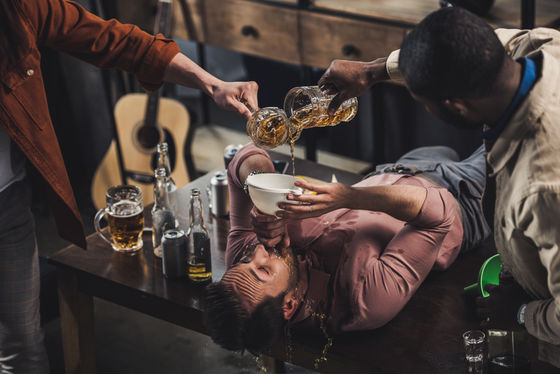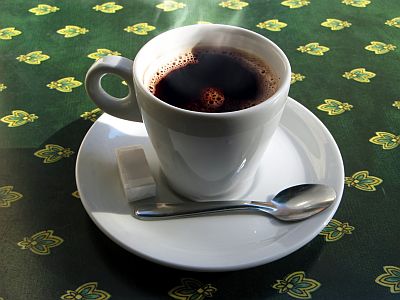Drinking water doesn't prevent hangovers, study finds

Drinking lots of water is often a recommended piece of advice for preventing a hangover, but a study looking at the relationship between dehydration and the terrible hangovers people experience the next day after heavy drinking found that drinking water actually does little to prevent a hangover.
Alcohol hangover versus dehydration revisited: The effect of drinking water to prevent or alleviate the alcohol hangover - ScienceDirect
Will Water Save You From a Hangover? Science Says Probably Not. : ScienceAlert
https://www.sciencealert.com/will-water-save-you-from-a-hangover-science-says-probably-not
Alcohol has a diuretic effect, so when you drink alcohol, you lose water from your body through urination, increasing the risk of dehydration. It is often said that the headaches, nausea, stomach pains, and general fatigue felt during a hangover are caused by dehydration, so it is natural to think that 'if you drink plenty of water to prevent dehydration, your hangover symptoms will be less severe.'
In order to scientifically verify the common knowledge that 'water is the best hangover remedy,' a research team led by Marlou Maccas, a pharmacologist at Utrecht University in the Netherlands, collected and analyzed data from 13 studies on alcohol-related hangovers, water intake, and dehydration.
The survey data included 826 Dutch university students who were asked how much food and fluids they consumed when drinking alcohol that caused a hangover, and 29 volunteers aged 18 to 30 who were asked to drink alcohol and then rate the severity of their hangover and dry mouth the next day.

Taken together, the results of these studies show that while hangovers and dehydration often occur together, there is no evidence that they are directly related. This means that one condition does not cause the other, so preventing dehydration by drinking fluids does little to directly prevent a hangover.
'While hangovers are typically relatively prolonged, the effects of dehydration are mild and brief. These data suggest that drinking fluids during or immediately after drinking alcohol provides only limited protection against the onset of a hangover the next day,' the researchers wrote in their paper.
The study found that drinking fluids is not particularly effective in preventing or treating a hangover, and the amount of water drunk was largely unrelated to hangover severity or changes in thirst.

According to the research team, dehydration is caused by the loss of electrolytes and fluids, while hangovers are caused by oxidative stress and inflammatory responses. Dehydration and hangovers are separate symptoms with different mechanisms of onset, which is why drinking fluids is not an effective hangover remedy.
The study has limitations, including some old data and small sample sizes. Also, most of the studies did not directly address the question of why some people get hangovers and others don't, the team wrote in their paper.
'The myth that drinking water can cure a hangover has been busted. Next time someone offers you a glass of water as a hangover cure, you'll be faced with the truth. Cheers to wisdom and sensible drinking!' Mr Mackas wrote in a social media post.
Related Posts:







